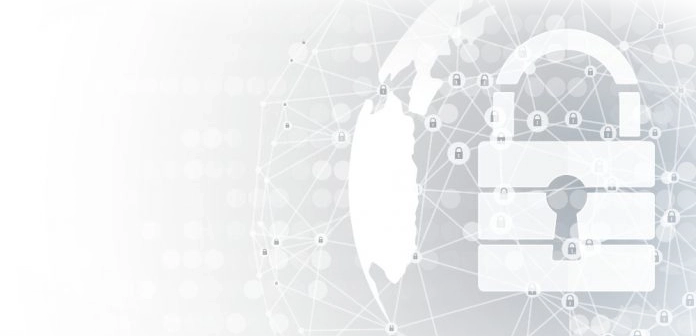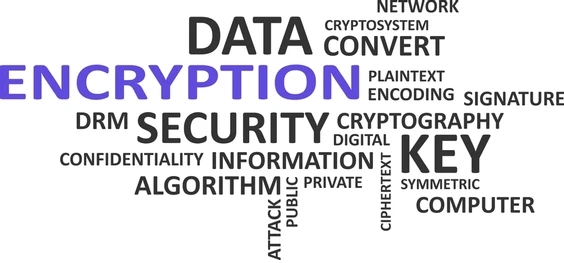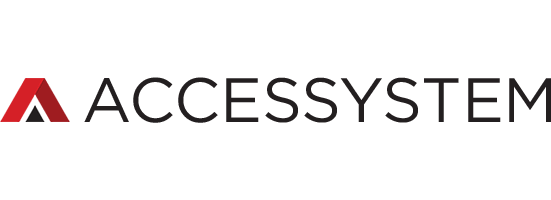Cybersecurity Solution by ACCESSYSTEM® Technologies
In today's world, cybersecurity is more important than ever. Cyber attacks are becoming increasingly frequent and sophisticated, and businesses of all sizes are at risk. That's why it's important to have a comprehensive cybersecurity solution in place to protect your company's data and systems from cyber threats.

A good cybersecurity solution
should include a range of measures to protect against different types of attacks. These may include:
Firewalls ( Next Generation Firewall ):
Firewalls are a critical component of any cybersecurity solution. They act as a barrier between your internal network and the internet, preventing unauthorized access to your systems and data.
Below are the some product that are offered by ACCESSYSTEM® Technologies.
Network Security :
Network security involves a range of measures to protect your network from cyber attacks. This may include intrusion detection and prevention systems, virtual private networks (VPNs), and other measures to ensure that your network is secure.


Data Encryption :
Data Encryption is a process that converts your data into a format that can only be read by authorized parties. This can help protect sensitive data such as passwords, credit card numbers, and personal information from being intercepted by cybercriminals.
Antivirus Software:
Antivirus software is designed to detect and remove malware from your systems. This can help protect against viruses, worms, trojans, and other types of malware that could compromise your data or systems.
Here are the some product that are offered by ACCESSYSTEM® Technologies.

Employee Training :
One of the biggest threats to cybersecurity is human error. That's why it's important to provide your employees with cybersecurity training to help them recognize potential threats and avoid falling victim to cyber attacks.
By implementing a comprehensive cybersecurity solution, you can help protect your business from cyber threats and keep your data and systems secure.
Frequently Asked Questions on Cybersecurity
- Confidentiality:
- Integrity:
- Availability:
- Authentication:
- Authorization:
- Network Security:
- Endpoint Security:
- Application Security:
- Security Awareness:
- Incident Response:
- Encryption:
- Vulnerability Management:
- Security Policies and Compliance:
Ensuring that sensitive data is not accessed or disclosed to unauthorized individuals or entities. This involves using encryption, access controls, and other methods to protect data from unauthorized disclosure.
Maintaining the accuracy and trustworthiness of data and systems. This involves preventing unauthorized changes or alterations to data, software, and configurations.
Ensuring that information and systems are available when needed. This involves protecting against disruptions, downtime, and denial-of-service attacks that can render systems and data inaccessible.
Verifying the identity of users and devices to grant appropriate access privileges. This can involve passwords, biometrics, multi-factor authentication, and other methods.
Defining and managing permissions and access controls to ensure that users and systems have the right level of access to data and resources.
Protecting the security of network infrastructure, including firewalls, intrusion detection systems, and intrusion prevention systems.
Securing individual devices (e.g., computers, smartphones, and IoT devices) to prevent malware, data breaches, and other threats.
Ensuring the security of software and web applications by identifying and mitigating vulnerabilities.
Educating users and employees about cybersecurity best practices to reduce the risk of social engineering attacks like phishing.
Developing plans and procedures to detect and respond to cybersecurity incidents promptly.
Using encryption techniques to protect data both in transit and at rest.
Identifying and addressing security vulnerabilities in software, hardware, and configurations.
Establishing and enforcing security policies and ensuring compliance with relevant laws and regulations.
- Data Protection:
- Privacy Preservation:
- Financial Security:
- Business Continuity:
- Reputation Management:
- Regulatory Compliance:
- Intellectual Property Protection:
- Protecting Critical Infrastructure:
- Cybercrime Prevention:
- Cyber Warfare Defense:
- Protection Against Emerging Threats:
Cybersecurity safeguards sensitive data, including personal information, financial records, intellectual property, and business-critical information. Preventing data breaches and leaks is vital to protect individuals' privacy and a company's reputation.
Protecting the privacy of individuals and organizations is a fundamental ethical and legal requirement. Cybersecurity helps maintain the confidentiality of personal and sensitive information.
Cyberattacks can lead to financial losses, including theft of funds, fraud, and legal liabilities. Robust cybersecurity measures can mitigate these risks.
Ensuring the availability and reliability of digital systems and services is crucial for business continuity. Cybersecurity helps prevent and mitigate disruptions caused by cyber incidents, such as DDoS attacks and malware infections.
A cybersecurity breach can severely damage an organization's reputation and trust among its customers, partners, and stakeholders. A tarnished reputation can have long-lasting, negative effects on an organization.
Many industries and jurisdictions have regulations and laws that require organizations to implement specific cybersecurity measures. Non-compliance can result in fines and legal consequences.
Organizations rely on proprietary technology, research, and innovations. Cybersecurity safeguards intellectual property, preventing theft or compromise by cybercriminals or competitors.
Many essential services, such as energy, transportation, and healthcare, rely on digital systems. Cybersecurity is vital to safeguarding these critical infrastructures from cyber threats.
Cybercrime is a lucrative and growing industry. Strong cybersecurity measures act as a deterrent and a barrier to cybercriminals.
In the context of international conflicts, nations must have strong cybersecurity capabilities to defend against cyber warfare, which can target military and critical infrastructure.
The threat landscape constantly evolves, with new types of attacks and vulnerabilities emerging regularly. Cybersecurity efforts are necessary to adapt to these changing threats.
Business Email Solution
No Hidden Charges.
Choose Your Best Plan.
All plans include guaranteed uptime and delivery and security features. Integrate your business email and website with us to impress your customers.
Business Pro
Most Popular- Limited Support
- 10 GB / account
- Capped Read receipts
- Data Encryption
- Multi account support
Business Premium
- 24*7 Support
- 50 GB / account
- Unlimited Read receipts
- Email Templates
- Includes all Business Pro features

























